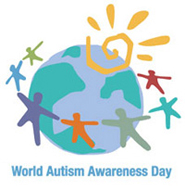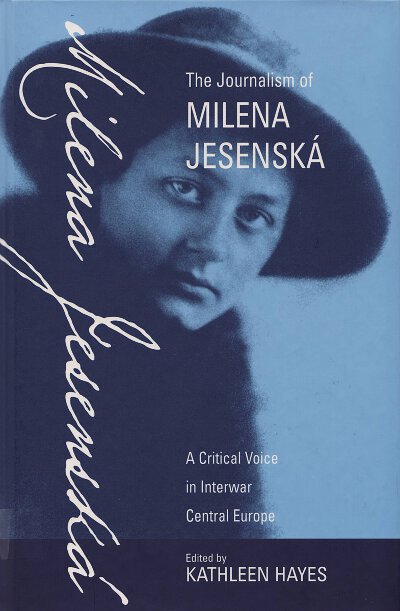
For Michael Haneke’s birthday, we have put together some of our relevent titles looking at the film director.
We have also collected some some Film Studies series, and Open Access Film and Television Studies for further browsing. For more content, you can also check out our website by Subject: Film and Television Studies here, or browse by Area, such as Europe, here.

The Ethic of the Image
Catherine Wheatley
“Wheatley provides excellent close readings of a number of films and crucial film scenes. The book as a whole could be used in conjunction with a film course on Haneke, or its various chapters would lend themselves to discussions in graduate and even undergraduate courses on contemporary European film…The writing style is clear and while it pursues a critical theoretical analysis, it remains free from jargon. “ · Monatshefte
Volume 7, Film Europa
SHORT-LISTED FOR BEST MOVING IMAGE BOOK BY THE AND/OR BOOK AWARDS; SHORT-LISTED FOR THE 2009 WILLY HAAS AWARD; NOMINATED SIGHT & SOUND MAGAZINE BOOK OF THE MONTH, SEPTEMBER 2009

The Political Aesthetics of Contemporary German and Austrian Cinema
Leila Mukhida
Through illuminating explorations of Michael Haneke, Valeska Grisebach, Andreas Dresen, and other filmmakers of the post-reunification era, Mukhida develops an analysis centered on film aesthetics and experience, showing how medium-specific devices like lighting, sound, and mise-en-scène can help to cultivate political sensitivity in spectators.
Volume 23, Film Europa
Read freely available introduction.

Existentialism and Contemporary Cinema
A Beauvoirian Perspective
Edited by Jean-Pierre Boulé and Ursula Tidd
This book is an attempt to redress this balance and reopen the dialogue between Beauvoir’s writings and film studies. The authors analyse a range of films, from directors including Claire Denis, Michael Haneke, Lucille Hadzihalilovic, Sam Mendes, and Sally Potter, by drawing from Beauvoir’s key works such as The Second Sex (1949), The Ethics of Ambiguity (1947) and Old Age (1970).
Read freely available introduction.

Edited by Robert von Dassanowsky and Oliver C. Speck
Out of a film culture originally starved of funds have emerged rich and eclectic works by film-makers that are now achieving the international recognition that they deserve: Barbara Albert, Michael Haneke, Ulrich Seidl, and Stefan Ruzowitzky, to give four examples. This comprehensive critical anthology, by leading scholars of Austrian film, is intended to introduce and make accessible this much under-represented phenomenon.
Read freely available introduction.

Existentialism and Contemporary Cinema
A Sartrean Perspective
Edited by Jean-Pierre Boulé and Enda MacCaffrey
At the heart of this volume is the assertion that Sartrean existentialism, most prominent in the 1940s, particularly in France, is still relevant as a way of interpreting the world today. […] In a scholarly yet accessible style, the contributors exploit the rich interplay between Sartre’s philosophy, plays and novels, and a number of contemporary films including No Country for Old Men, Lost in Translation and The Truman Show, with film-makers including the Dardenne brothers, Michael Haneke, and Mike Leigh.
Read freely available introduction.
Additional Recommendation: A Title on Austrian Film

Homemade Men in Postwar Austrian Cinema
Nationhood, Genre and Masculinity
Maria Fritsche
“An extraordinary work, in Postwar Austrian Cinema adds to its lucid presentation of the social and aesthetic dynamics of Austrian national cinema after 1945 a welcome number of superb readings of better and lesser-known films. The period is unlikely to be served by a more thoughtful and attentive analysis any time soon.” • Austrian History Yearbook
Volume 15, Film Europa
Film Book Series
Browse Film Europa
“This is a series which, in a very short period of time, has had a huge impact on the field.” · Monatshefte
German cinema is normally seen as a distinct form, but this series emphasizes connections, influences, and exchanges of German cinema across national borders, as well as its links with other media and art forms. Individual titles present traditional historical research (archival work, industry studies) as well as new critical approaches in film and media studies (theories of the transnational), with a special emphasis on the continuities associated with popular traditions and local perspectives.
Browse Visual And Media Cultures Of The Cold War And Beyond
Published by Berghahn Books and the DEFA Film Library at the University of Massachusetts Amherst.
This interdisciplinary series focuses on a range of visual and media cultures in and beyond the Cold War period (1945-1991) in both social and transnational contexts. It explores ways in which film and other media, their creators and audiences, and industries and states participated in, were shaped by and, in turn, shaped cultural relations during the Cold War. Beyond 1991, this series also welcomes interdisciplinary explorations of the legacies of the Cold War and its ongoing cultural impact in a global context.
Check out some of our Open Access Film and Television Studies titles. Browse more here.






























 We are delighted to inform you that we will be attending the 60th Society for Cinema & Media Studies Conference in Seattle, Washington on March 13th to 17th, 2019. Please stop by our stand to meet the editor, browse our latest selection of books at discounted prices and pick up free journal samples.
We are delighted to inform you that we will be attending the 60th Society for Cinema & Media Studies Conference in Seattle, Washington on March 13th to 17th, 2019. Please stop by our stand to meet the editor, browse our latest selection of books at discounted prices and pick up free journal samples.
 The ninth annual World Autism Awareness Day is April 2, 2017. Every year, autism organizations around the world celebrate the day with unique fundraising and awareness-raising events. The theme this year is “Toward Autonomy and Self-Determination.” Follow people’s experiences with Autism Awareness on social media with the hashtag #LIUB.
The ninth annual World Autism Awareness Day is April 2, 2017. Every year, autism organizations around the world celebrate the day with unique fundraising and awareness-raising events. The theme this year is “Toward Autonomy and Self-Determination.” Follow people’s experiences with Autism Awareness on social media with the hashtag #LIUB. Milena Jesenská
Milena Jesenská